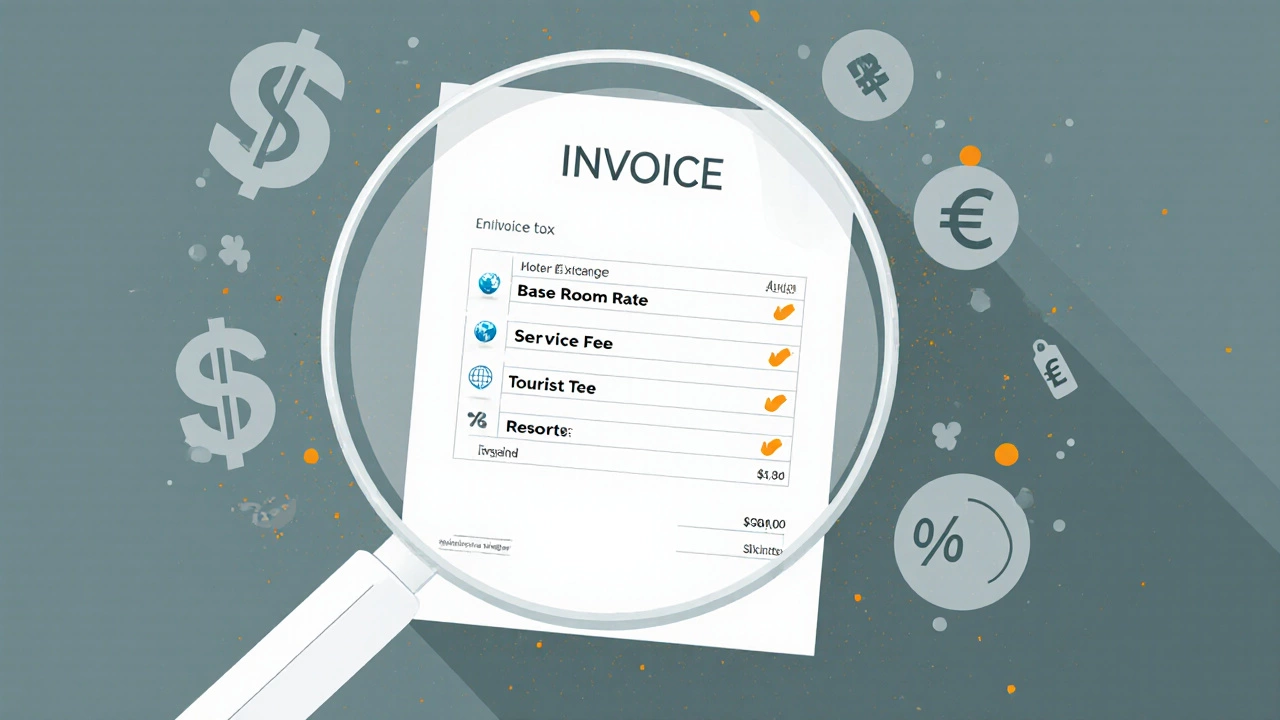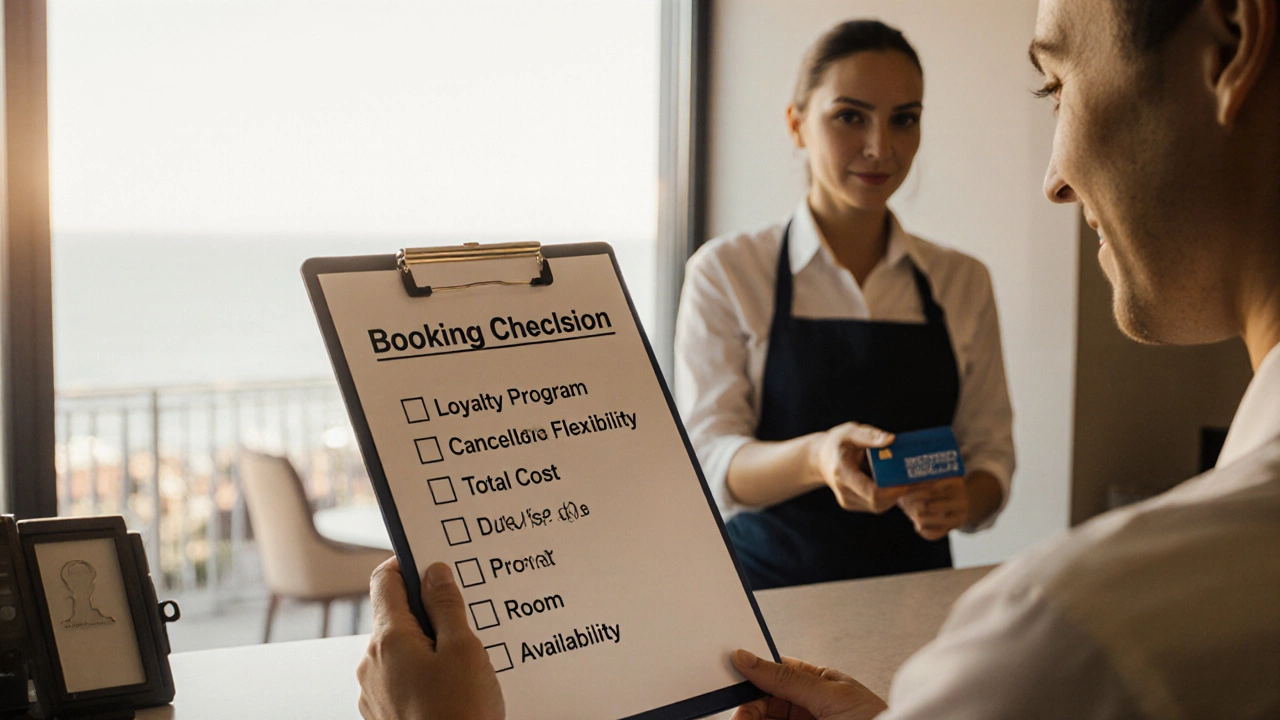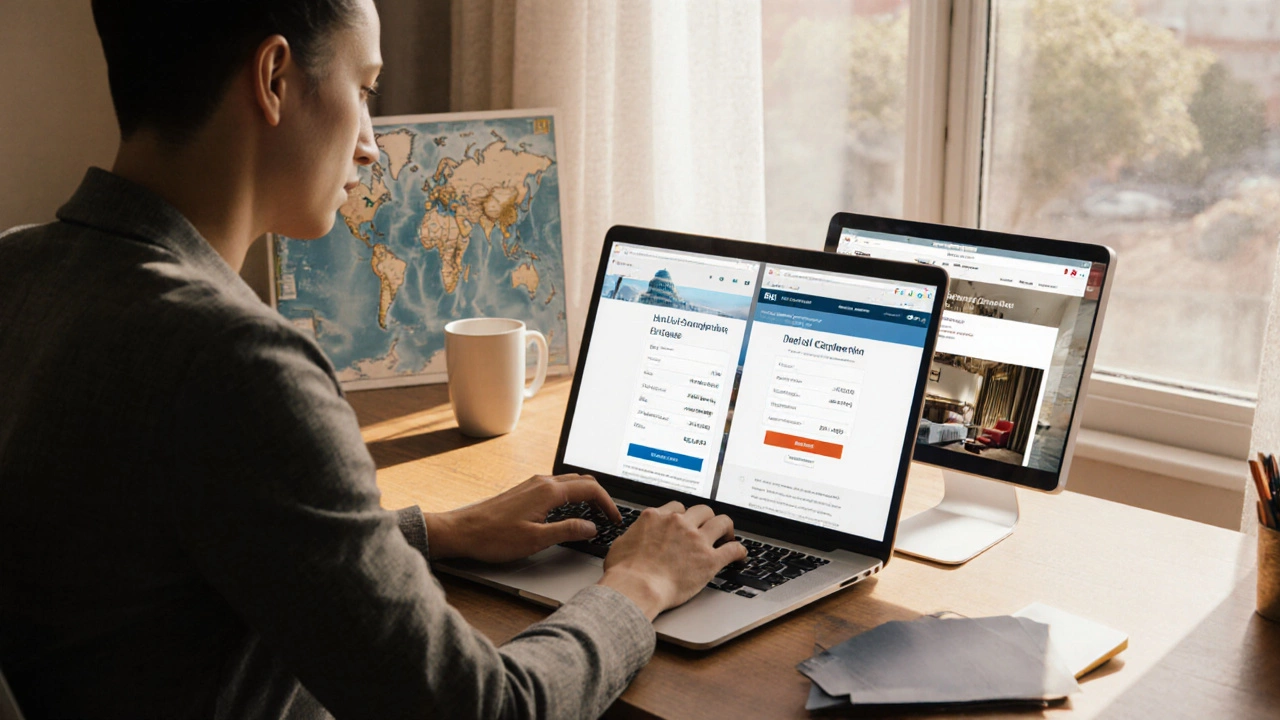Hotel Booking Cost Calculator
Compare Booking Costs
See the true total cost difference between booking through an Online Travel Agency (OTA) and booking directly with the hotel
OTA Booking
Direct Booking
When you plan a trip, the first question after picking a destination is usually Hotel booking the process of reserving a room at a hotel for a specific stay. The internet offers two obvious routes: go through an Online travel agency a website that aggregates hotel rooms from many brands and lets you compare prices (think Booking.com, Expedia, or Agoda) or book Direct booking reserving a room straight from the hotel’s own website or by calling the front desk. Both claim the best rate, yet the reality is messier. In the next few minutes you’ll see why the hotel booking price can differ, what hidden costs to watch for, and which method usually comes out cheaper for the average traveller.
Key Takeaways
- Online travel agencies often show lower base rates, but they can add service fees and limit flexibility.
- Direct bookings usually waive extra fees, offer better loyalty points, and give more leeway on cancellations.
- Dynamic pricing means the same room can cost different amounts on the same night depending on where you look.
- Check the hotel’s price‑parity policy - if they promise the same rate across channels, you can safely compare.
- Use a checklist: compare total cost (including taxes), cancellation terms, loyalty benefits, and any hidden charges before you click ‘confirm’.
How Online Travel Agencies Set Their Prices
OTAs rely on Dynamic pricing the practice of adjusting room rates in real time based on demand, booking window, and competitor rates. They pull data from the hotel’s central reservation system (CRS) and then apply their own markup. This markup can be a flat fee (e.g., $2 per booking) or a percentage of the room rate. Because OTAs compete for clicks, they often push the lowest visible price to attract users, even if the final amount after taxes and fees ends up higher.
Another factor is the Price parity a contractual agreement where a hotel promises to offer the same net rate across all distribution channels. Many chains sign parity clauses with major OTAs, meaning the hotel can’t show a lower net price on its own site. However, the OTA may still add a service charge that the hotel’s website doesn’t have, making the total cost different.
What Direct Booking Gets Right
When you reserve straight from the hotel, you’re dealing with the property’s own Room inventory the total number of rooms a hotel can sell for a given night. Hotels often reserve a block of rooms for direct sales because they avoid paying a commission to a third party. Those rooms can be priced more flexibly, sometimes undercutting the OTA rates.
Direct bookings also let you tap into the hotel’s Loyalty program a rewards scheme that gives points or perks for staying repeatedly at the same brand. Points can translate into free nights, upgrades, or complimentary services - benefits that OTAs can’t match.
Lastly, hotels usually have more forgiving Cancellation policy the rules governing if and how you can change or cancel a reservation without a penalty. Direct guests often receive free cancellation up to 24‑48 hours before check‑in, while OTA bookings may lock you into a non‑refundable rate to claim the lower price.

Hidden Costs You Might Miss
Both routes have fees that aren’t always obvious at first glance:
- Service fees - OTAs add a processing charge per booking. It can be a flat $1‑$5 or up to 10 % of the room rate.
- Tourist taxes - Some destinations embed local taxes in the displayed price, others list them separately at checkout.
- Resort fees - Even if the night rate is cheap, the hotel may tack on a mandatory fee for Wi‑Fi, pool access, or gym use.
- Currency conversion - If you book in a foreign currency, the OTA’s conversion rate may include a markup.
When you compare, always add these line‑item costs to the base rate. The cheapest‑looking price on an OTA can balloon once taxes and fees are included.
Side‑by‑Side Comparison Table
| Aspect | Online travel agency | Direct hotel booking |
|---|---|---|
| Base room rate | Often lower‑visible price, but can be inflated by markup. | Similar or slightly higher, but no commission added. |
| Additional fees | Service fee, possible currency markup. | Usually none; taxes shown upfront. |
| Cancellation flexibility | Often non‑refundable or strict deadlines. | Free cancellation up to 24‑48 h (varies by hotel). |
| Loyalty perks | Rarely offer points; occasional promo codes. | Earn brand points, upgrades, late checkout. |
| Room availability | Shows inventory across many hotels; may sell out quicker. | Access to rooms held back for direct sales. |
| Price‑parity enforcement | Depends on contracts; some OTAs demand parity. | Hotel can offer exclusive discounts. |

Decision Checklist - Which Route Wins for You?
- Do you belong to a hotel loyalty program? If yes, lean toward direct.
- Is the OTA price labeled “non‑refundable”? If you need flexibility, skip it.
- Has the OTA added a service fee? Add it to the total and compare.
- Are you booking at the last minute? OTAs sometimes have surplus inventory at lower rates.
- Do you need a specific room type (e.g., sea view) that the hotel holds back for direct guests? Check the hotel’s site.
If after running through the list the OTA still looks cheaper, book there. Otherwise, go direct and enjoy the extra perks.
Pro Tips to Nail the Cheapest Rate
- Clear your cookies or use incognito mode. Some sites raise prices after multiple visits.
- Check the hotel’s own site after you find an OTA deal. Many hotels match the price and waive the commission.
- Sign up for the hotel’s newsletter. They sometimes send exclusive discount codes.
- Consider bundled packages (room + flight) on OTAs if you’re already buying a ticket - the bundle discount can outweigh the service fee.
- Book on a Tuesday or Wednesday. Mid‑week searches often reveal lower rates.
Mini FAQ
Do OTAs always charge a service fee?
Most major OTAs add a small processing fee, but the amount varies. Some promotions waive it, so always check the final checkout screen.
Can I get the same rate on a hotel’s website as on an OTA?
If the hotel has a price‑parity clause, the net rate will be the same, but the OTA may still tack on fees. Call the hotel and ask them to match the OTA’s total price; they often do.
Are loyalty points worth booking directly?
Yes, especially for repeat travellers. Points can add up to free nights, room upgrades, or complimentary breakfast, which can outweigh a few dollars saved on an OTA price.
What about last‑minute deals?
OTAs often have a “last‑minute” section where hotels dump unsold rooms at reduced rates. In those cases, the OTA usually wins on price, but check the cancellation terms before you commit.
Should I use a travel aggregator like Kayak?
Aggregators compare multiple OTAs and sometimes the hotel’s own site in one view, making it easier to spot the true lowest total cost. They don’t add extra fees, so they’re a good first step.
Bottom line: there’s no one‑size‑fits‑all answer. The cheaper option depends on your flexibility, loyalty status, and the specific hotel’s policies. Use the checklist, add up all fees, and you’ll know whether the online deal or the direct reservation gives you the best bang for your buck.
